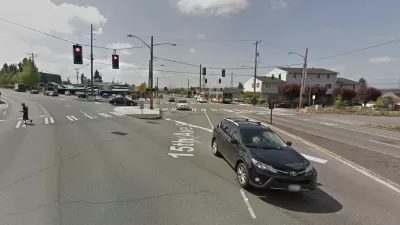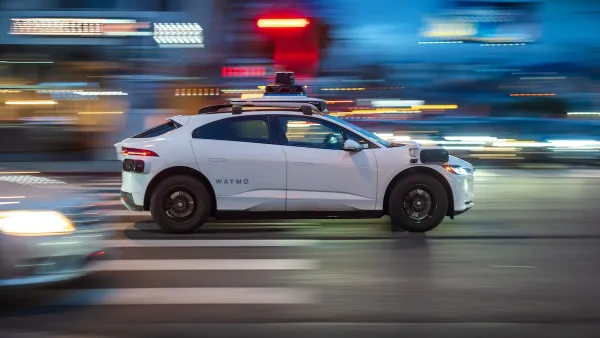Robert Mellinger reports on efforts to build the nation's largest public food forest in the Beacon Hill neighborhood in Seattle.
Scheduled to break ground this Spring, the Beacon Food Forest will occupy seven acres currently owned by Seattle Public Utilities (SPU), transforming the sloping lawn into community park space and edible landscape.
According to Mellinger, "The end goal is an urban oasis of public food: Visitors to the corner of 15th Ave S. and S. Dakota Street will be greeted by a literal forest - an entire acre will feature large chestnuts and walnuts in the overstory, full-sized fruit trees like big apples and mulberries in the understory, and berry shrubs, climbing vines, herbaceous plants, and vegetables closer to the ground.
Further down the path an edible arboretum full of exotic looking persimmons, mulberries, Asian pears, and Chinese haws will surround a sheltered classroom for community workshops. Looking over the whole seven acres, you'll see playgrounds and kid space full of thornless mini edibles adjacent to community gardening plots, native plant areas, a big timber-frame gazebo and gathering space with people barbecuing, a recreational field, and food as far as you can see."
Built around the concept of permaculture, "an ecological design system for sustainability in all aspects of human endeavor," Beacon Food Forest has blazed a path through the bureaucratic thickets of Seattle, in a process that could have far reaching effects on efforts to procure and produce more food locally in cities across the country.
FULL STORY: Nation's largest public Food Forest takes root on Beacon Hill

Planetizen Federal Action Tracker
A weekly monitor of how Trump’s orders and actions are impacting planners and planning in America.

Map: Where Senate Republicans Want to Sell Your Public Lands
For public land advocates, the Senate Republicans’ proposal to sell millions of acres of public land in the West is “the biggest fight of their careers.”

Restaurant Patios Were a Pandemic Win — Why Were They so Hard to Keep?
Social distancing requirements and changes in travel patterns prompted cities to pilot new uses for street and sidewalk space. Then it got complicated.

Platform Pilsner: Vancouver Transit Agency Releases... a Beer?
TransLink will receive a portion of every sale of the four-pack.

Toronto Weighs Cheaper Transit, Parking Hikes for Major Events
Special event rates would take effect during large festivals, sports games and concerts to ‘discourage driving, manage congestion and free up space for transit.”

Berlin to Consider Car-Free Zone Larger Than Manhattan
The area bound by the 22-mile Ringbahn would still allow 12 uses of a private automobile per year per person, and several other exemptions.
Urban Design for Planners 1: Software Tools
This six-course series explores essential urban design concepts using open source software and equips planners with the tools they need to participate fully in the urban design process.
Planning for Universal Design
Learn the tools for implementing Universal Design in planning regulations.
Heyer Gruel & Associates PA
JM Goldson LLC
Custer County Colorado
City of Camden Redevelopment Agency
City of Astoria
Transportation Research & Education Center (TREC) at Portland State University
Camden Redevelopment Agency
City of Claremont
Municipality of Princeton (NJ)





























